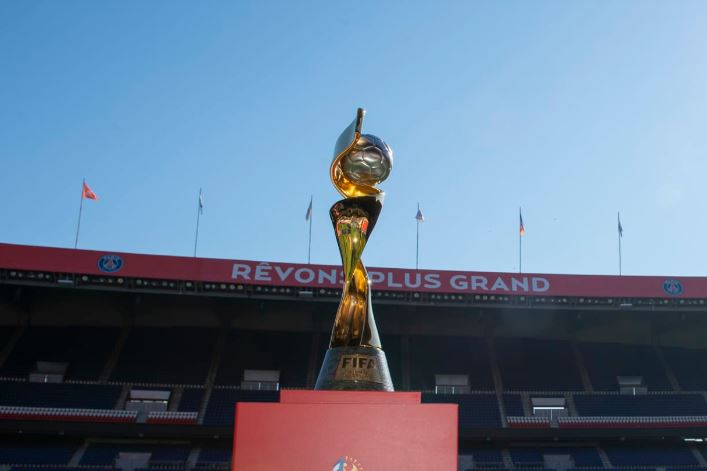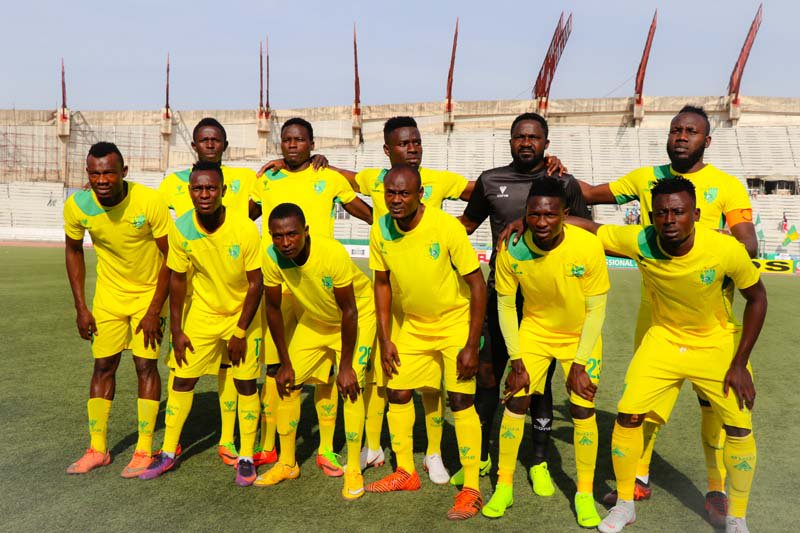
FIFA has paid $194,030 as solidarity payments to twenty-one professional and grassroots Nigerian club sides for their part in developing and releasing players that represented Nigeria at the 2019 Women’s World Cup in France.
Four of the clubs including Rivers Angels, FC Robo, Bayelsa Queens and Nasarawa Amazons received payments for releasing players for the tournament.
Seventeen other clubs were recognised for their role in training and developing several Super Falcons players who were at the tournament.
The payments “reward clubs for providing players with a professional football pathway, while encouraging and incentivising football clubs to continue developing talent in the women’s game,” FIFA said in a statement.
“The money is paid out with the intention of enabling beneficiary clubs to create a high-performance environment for the best players in the world and to invest in developing women’s football at grassroots level.
“By providing opportunities for talented players to pursue their careers and to further professionalise women’s football, the FIFA Women’s World Cup Club Solidarity Fund should ensure that the phenomenal success of France 2019 is by no means a one-off.”
Africa’s other representatives in France, Cameroon (26 clubs) and South Africa (35 clubs) received $205,580 and $189,190 respectively.
The payments which were released to eligible member associations in December from the first edition of the FIFA Women’s World Cup Club Solidarity Fund established last year, will be used to support dedicated youth football and development programmes for women and girls, world football’s governing body said.
A total of $8.46 million, from the overall financial contribution of $50 million to the participants of the FIFA Women’s World Cup France 2019, was distributed to 822 professional and grassroots clubs from 39 FIFA Member Associations.
The fund was shared between the eligible releasing clubs who had players at the Mundial and training clubs who played a part in the development of the players between the ages of 12 and 22.
The Super Falcons coached by Thomas Dennerby included six home-based players in the 23-woman squad to France where the team reached the second round for the first time since the 1999 edition.
Rivers Angels trio Tochukwu Oluehi, Chiamaka Nnadozie and Alice Ogebe, Alaba Jonathan (Bayelsa Queens), Chidinma Okeke (FC Robo) and Amarachi Okoronkwo (Nasarawa Amazons) all made the squad from the domestic league.
However, a bulk of the Falcons team had their formative and developmental years in Nigeria which is reflected in the number of club sides and academies rewarded by FIFA.
FULL LIST OF CLUBS AND AMOUNTS RECEIVED IN USD
Rivers Angels FC 45,500
Nasarawa Amazons FC 27,530
Bayelsa Queens FC 27,100
FC Robo Queens 25,810
Delta Queens FC 15,080
Coal City Babes FC 10,340
Invincible Angels FC 7,760
Sao Paulo Queens 6,030
Pelican Stars FC 4,310
Novia Queens FC 3,450
Delta Youth Sports Academy 3,450
Omidiran Babes FC 2,590
Iwundu Academy FC 2,590
YSFON Queens 2,590
Clever Stars FC 2,590
Abia Angels FC 1,720
Remo United Queens FC 1,720
Living Boot Academy 1,720
Ibom Angels FC 1,290
C&C Sports Club 860
The exact amounts received by the clubs was calculated based on the number of days that each team participated in the tournament, starting from the beginning of the preparation phase on 24 May 2019 until one day after the team exited the tournament.
Eligible club sides were identified by all 24 member associations that qualified for the Mundial who provided FIFA with the playing histories of each squad member from the age of 12 to 22.
Member Associations that didn’t qualify but played a part in the development of the players or whose clubs the players were affiliated to in the period under review were also covered in the fund.
FIFA split the funds into two equal parts dedicated to the eligible releasing clubs and the eligible training clubs respectively. The funds were then distributed to the relevant member associations at the end of December 2019 for onward disbursements to the eligible clubs.
Australia, the USA and France had the most number of eligible clubs with 59 each while the USA received the largest share of the funds with $789,960.
French side Olympique Lyon received the largest sum for clubs sides with $178,770 while Asisat Oshoala’s FC Barcelona was second-highest with $174,440.
FIFA stipulated that all funds must be used for youth and development programmes for women and girls and clubs had to formally agree to invest all of the money in women’s football in order to receive the funds.
Even if the eligible club has only men’s or boys’ teams, the club must ensure that talented women and girls can continue to have an access route through the men’s/boys’ elite pathway system.
Of the 822 participating clubs, 644 were training clubs and 43 were releasing clubs, while 135 clubs were rewarded as both a training club and a releasing club.
The FIFA Women’s World Club Solidarity Fund, the world governing body said, is part of its vision for the future of the game, focusing on the development and professionalisation of women’s football as a strategic priority.
“Building on the success of the FIFA Women’s World Cup last year, the solidarity funding distributed as a result of the tournament will provide much-needed additional financial support for many women’s football clubs around the world,” said FIFA’s Chief Women’s Football Officer Sarai Bareman.
“With USD 1 billion already committed to women’s football over the next four-year cycle in the lead-up to the FIFA Women’s World Cup in 2023, the solidarity funds distributed will play an important role in providing more opportunities for women and girls to play football, as well as rewarding and giving back to 822 training and grassroots clubs for the vital role they played in developing the stars of last summer’s FIFA Women’s World Cup.
“At a time when many clubs around the world impacted by the current coronavirus pandemic, FIFA is looking to continue the long-term investment we are making in the women’s game, as well as the momentum and the interest generated last summer.
“Through the additional development funding that has now been distributed, we hope that this supports clubs and MAs in the important role they play in the growth of women’s football and will encourage them to continue to invest in the sport in the future.
“The growth of women’s football requires a joint effort at all levels if we are to build a strong and sustainable future for the women’s game. Only together can we realise the full potential of women’s football and truly bring the game to all.”










